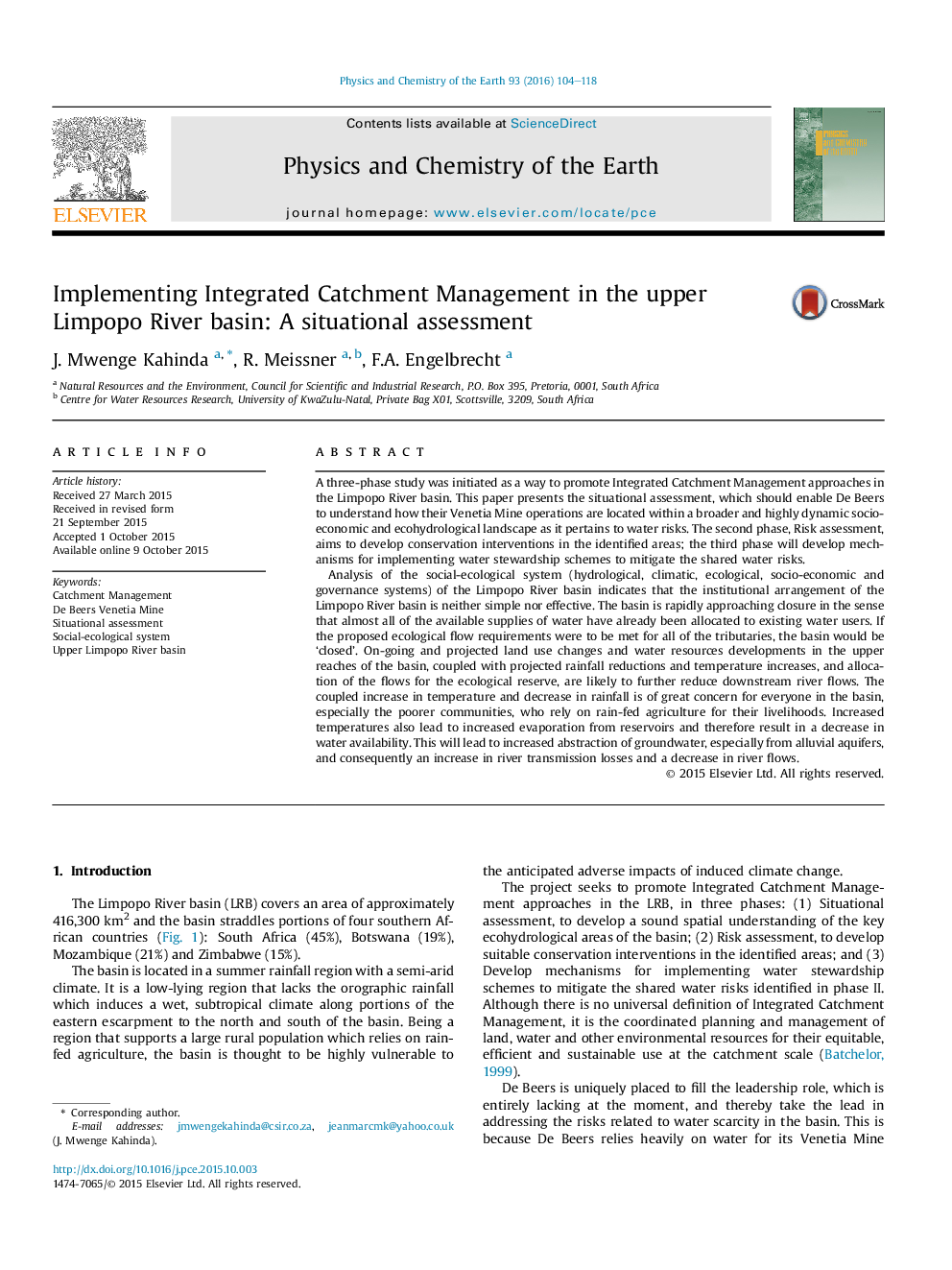| کد مقاله | کد نشریه | سال انتشار | مقاله انگلیسی | نسخه تمام متن |
|---|---|---|---|---|
| 4720808 | 1639345 | 2016 | 15 صفحه PDF | دانلود رایگان |
• The socio ecological system of the upper Limpopo River basin is assessed.
• Institutional arrangements of the River basin are complex and ineffective.
• The basin is closed and climate projections indicate a reduction in rainfall.
• The scales of ecological processes and their managing institutions are mismatched.
A three-phase study was initiated as a way to promote Integrated Catchment Management approaches in the Limpopo River basin. This paper presents the situational assessment, which should enable De Beers to understand how their Venetia Mine operations are located within a broader and highly dynamic socio-economic and ecohydrological landscape as it pertains to water risks. The second phase, Risk assessment, aims to develop conservation interventions in the identified areas; the third phase will develop mechanisms for implementing water stewardship schemes to mitigate the shared water risks.Analysis of the social-ecological system (hydrological, climatic, ecological, socio-economic and governance systems) of the Limpopo River basin indicates that the institutional arrangement of the Limpopo River basin is neither simple nor effective. The basin is rapidly approaching closure in the sense that almost all of the available supplies of water have already been allocated to existing water users. If the proposed ecological flow requirements were to be met for all of the tributaries, the basin would be ‘closed’. On-going and projected land use changes and water resources developments in the upper reaches of the basin, coupled with projected rainfall reductions and temperature increases, and allocation of the flows for the ecological reserve, are likely to further reduce downstream river flows. The coupled increase in temperature and decrease in rainfall is of great concern for everyone in the basin, especially the poorer communities, who rely on rain-fed agriculture for their livelihoods. Increased temperatures also lead to increased evaporation from reservoirs and therefore result in a decrease in water availability. This will lead to increased abstraction of groundwater, especially from alluvial aquifers, and consequently an increase in river transmission losses and a decrease in river flows.
Journal: Physics and Chemistry of the Earth, Parts A/B/C - Volume 93, June 2016, Pages 104–118
